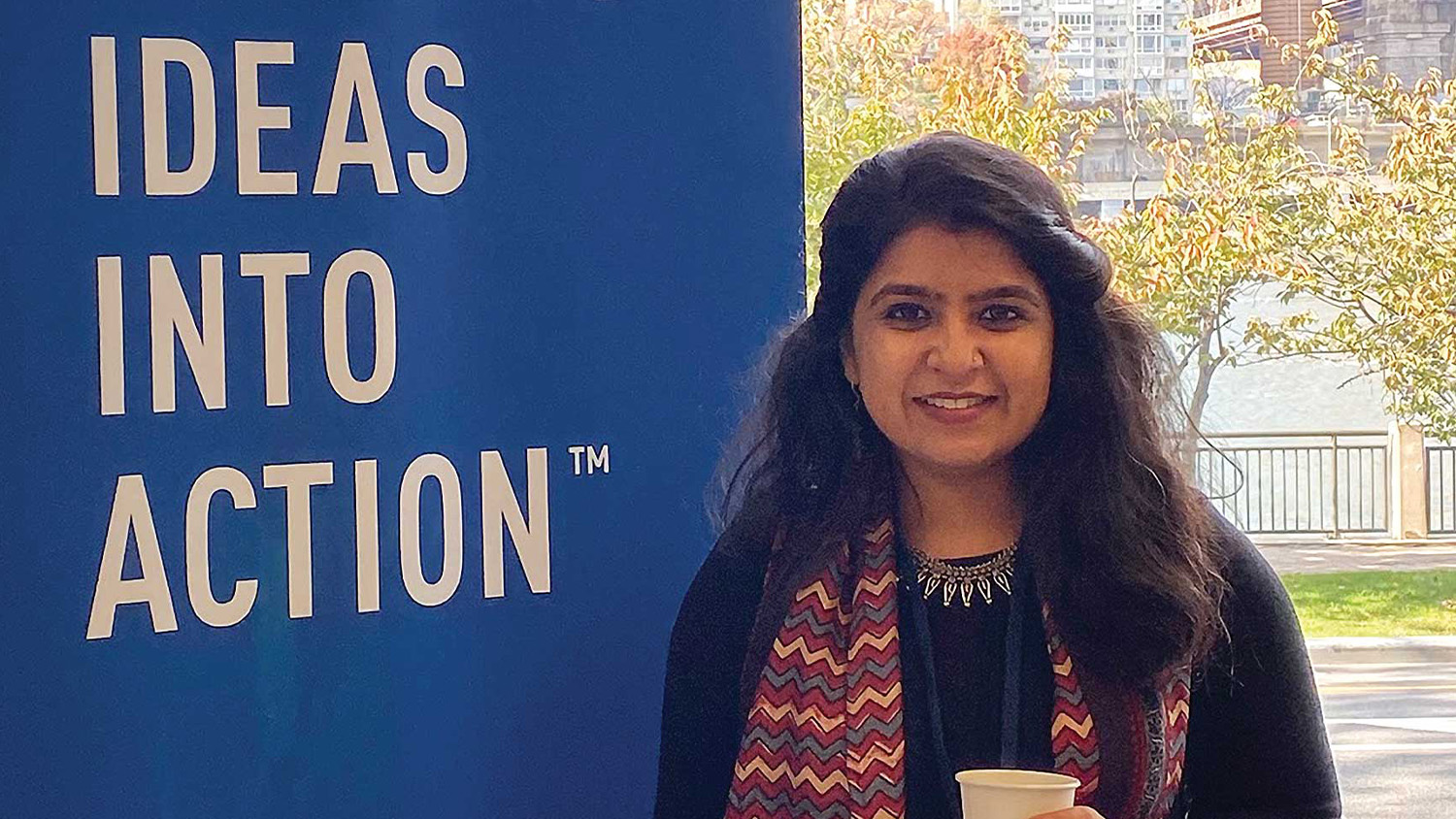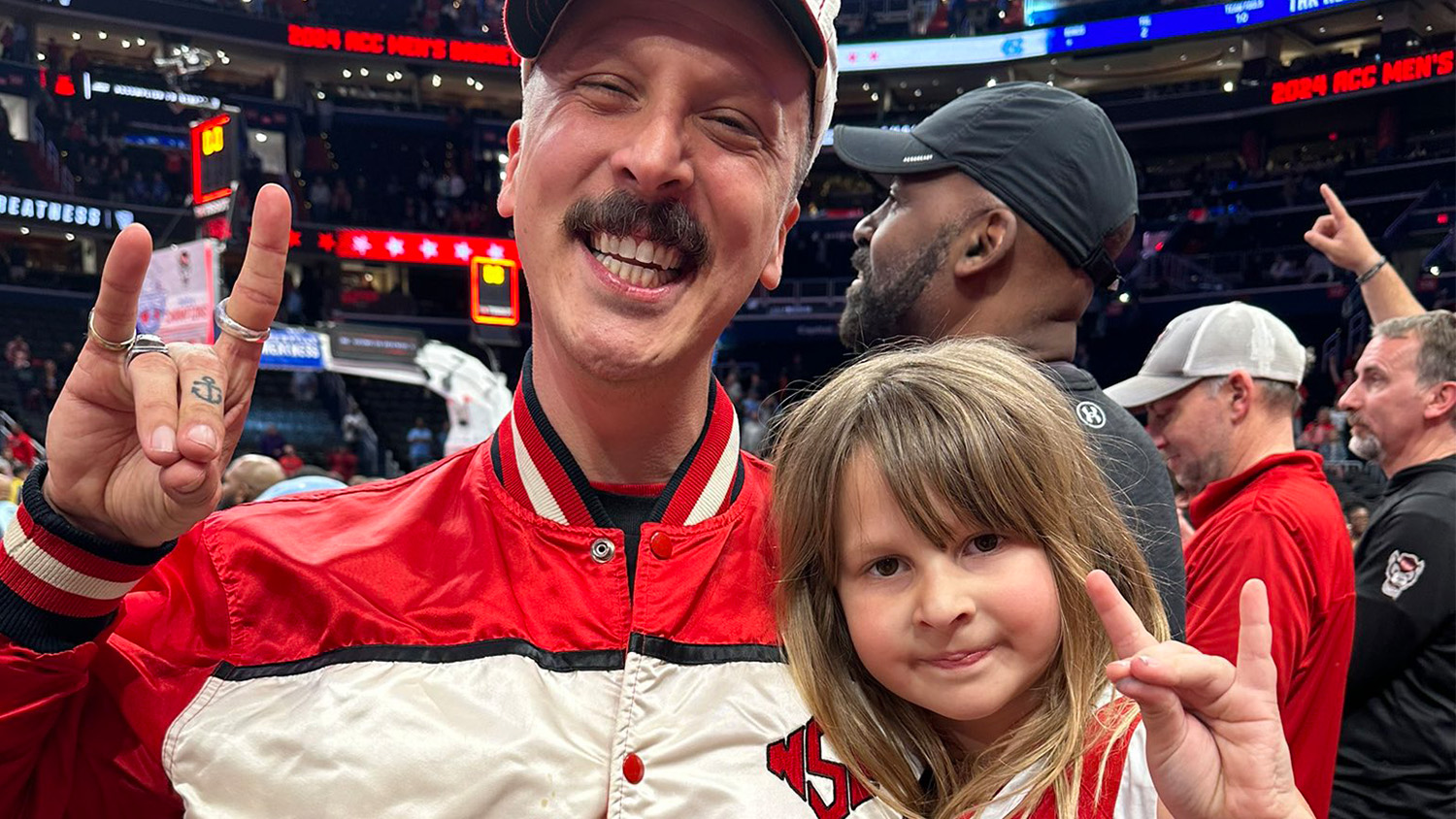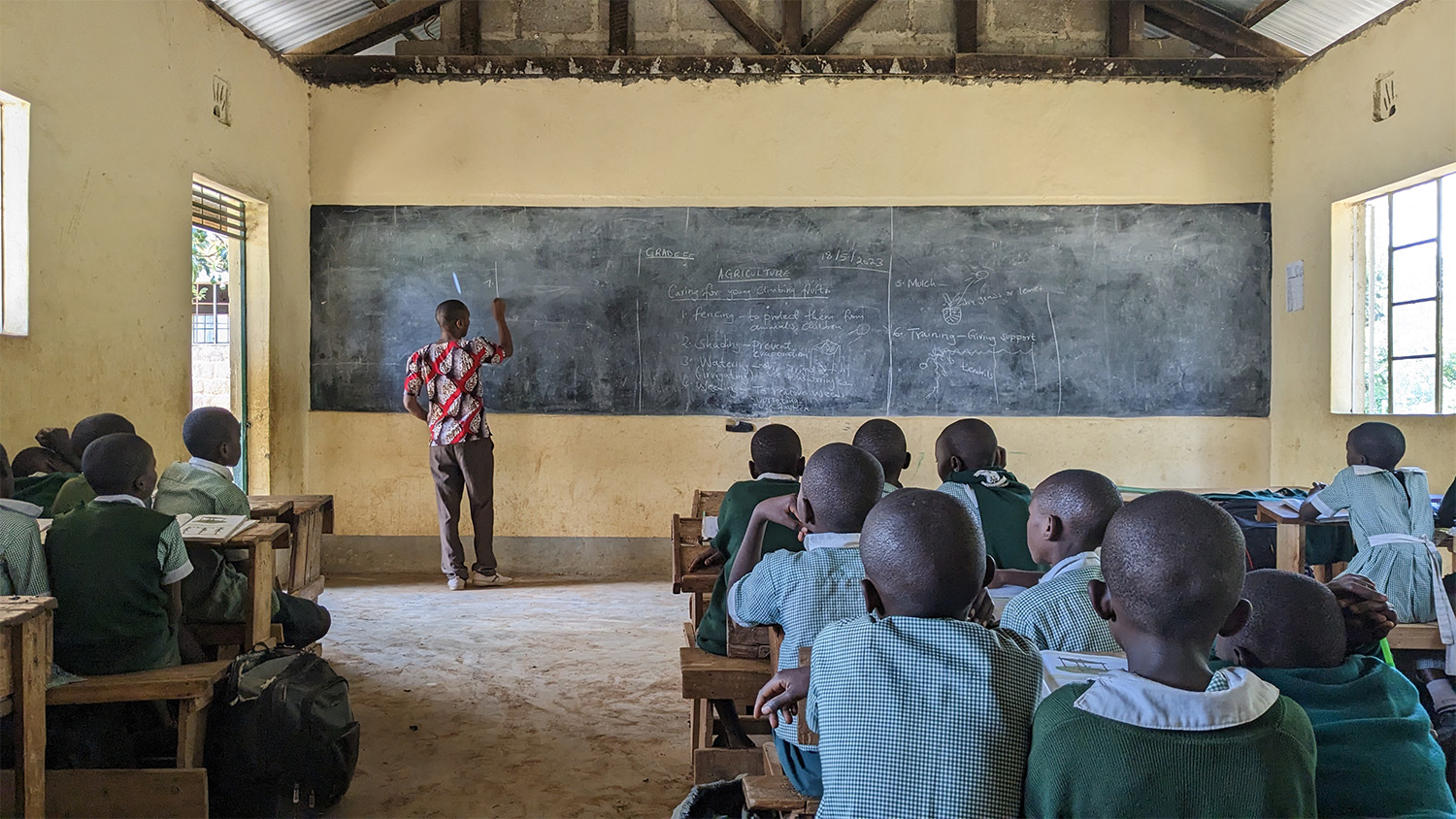Working From Her Homeland
Ritu Jadwani ’12 MR turned to her native India to launch a fair-trade fashion design brand.

By David Menconi
Ritu Jadwani ’12 mr runs a fair-trade fashion design brand that turns recycled materials into clothing in India that is then sold online — something she learned at home.
“My grandmother would use old saris to design curtains and dresses and scarves,” says Jadwani, whose company is Namaste NYC. “My mother would design dresses for big occasions, like weddings for us. So recycling and cultural sustainability were values I saw growing up.”
Jadwani’s first degree was in fashion design at India’s National Institute of Fashion Technology. She came to NC State for the master’s program in global innovation management, which involved studying in France and Raleigh, and an internship in China.
Returning to India, she founded Namaste NYC, working with hundreds of primarily women artisans in rural villages throughout India. Because the work is remote rather than on-site, it can be more easily done by people with disabilities.
“Working full time for women is still not allowed in many regions of India, and women have to ask permission from husbands,” says Jadwani, 33, who lives in Ahmedabad in the western state of Gujarat. “That was an issue to overcome, along with the local crafts slowly diminishing and dying, due to the modernizations in India. So I started this initiative to create employment opportunities in crafts and textiles.”
Check the company’s online catalog etsy.com/shop/NamasteNYCIndia and you’ll find everything from scarves to footwear, made from recycled materials when-ever possible. “The initial work was a lot on the ground at the grassroot level and marketing the ‘brand’ on global scale,” Jadwani says. “Visiting villages, finding the team, collaborating with artisans, doing samples, meeting buyers. Now that the team and supply chain are set, my work is more management and design. But craft can have a very therapeutic value. Even now, at the end of a long day, I try to print or paint or color. It is very meditative.”
- Categories:


